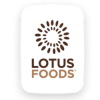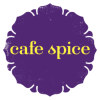During the CAGNY conference in Florida, Food Dive talked to food executives to gain insight into how CPG companies are positioning their businesses to tap into growth areas amid rapid changes in consumer tastes. This is the fourth in a five-part series. Click here to read the previous stories on McCormick & Co., Tyson Foods and Campbell Soup.
Hormel Foods has a roster of household staples such as Spam and Dinty Moore synonymous with the company, but its future is increasingly being built on acquisitions.
"We haven't stopped looking, so as the opportunities come forward" we'll consider them, Jim Snee, Hormel's CEO, told Food Dive on the sidelines of the annual Consumer Analyst Group of New York conference in Florida.
The company's acquisition targets include businesses that are global, multi-cultural, on the go and focused on health — a common theme among Big Food companies struggling for growth, looking to diversify and scrambling to get their portfolios in line with rapidly changing consumer trends.
Hormel has been active in recent years in M&A with acquisitions of Applegate, Justin's, Skippy and Muscle Milk. These deals provide a stronger presence in fast-growing categories such as natural and organic meats and nut butter snacks, while offsetting exposure to volatile commodity prices that have weighed on the company through its Jennie-O turkey division.
But recently, Snee has focused on expanding outside of the U.S. Hormel made its first entry into the South American market last October by purchasing a Brazilian sausage and salmi maker — and adding smaller brands to its lineup, punctuated by its $850 million purchase of Columbus Manufacturing, a maker of premium craft meats popular in grocery store delis, in October. Last year, Hormel spent $1.4 billion to purchase these two business and Fontanini Italian Meats and Sausages, a supplier of products to the foodservice sector.

The company has identified the deli as a one of its growth targets, noting the space is growing four-times faster than other food parts of the store, and meets some of the trendy areas, such as premium brands, grab-and-go items, prepared foods and grocery store restaurants. It recently created a division focused entirely on deli sales, including Columbus, Jennie-O turkey and Hormel ham, with nearly $1 billion in sales. The deli is a $35 billion opportunity, according to Snee.
"This is the next growth engine for Hormel foods," he told analysts last week at CAGNY. "Make no mistake about it, Hormel is poised to win in the deli."
Deli sales currently account for just under a fifth of total store sales, according to Nielsen Fresh, and are one of the major profit centers for retailers. While terms like paper thin and thick cut traditionally have dominated the deli, today it's words like Charcuterie, artisan and crafted.
"We've been very strategic in terms of how we identify these growth areas, and now we have execute against them," Snee said.
Challenges at Jennie-O
A challenge that Hormel can't seem to overcome is challenges in its Jennie-O turkey division, which is dealing with an oversupply of birds that has pressured sales and profitability. Snee said Hormel has no plans to sell the unit, which he conceded is "masking some of the other great things" going on at Hormel.
"It is still a business that we are incredibly optimistic about. We know that it’s on trend. We know that consumers as they look for more healthier offerings, turkey fits squarely in where the consumer is going," Snee said. “We’re in it for the long term, that’s the bottom line.”
Last week, Hormel said first-quarter sales came in at $2.3 billion, up 2%, while organic net sales rose 1%. Volume was down 4% to 1.2 billion pounds, and organic volume slipped 2%. The food company said it would invest in its key domestic brands such as Jennie-O, Hormel pepperoni, Skippy, Muscle Milk, and Evolve, its new plant-based protein brand.
Credit Suisse Wednesday lowered its estimates for the company following "weak" results, according to Seeking Alpha, citing higher freight costs and challenges at Jennie-O. It set a price target on the stock of $33, roughly where Hormel was trading at Wednesday.
"Volatility in the protein commodity markets represents the biggest downside risk to our target price and neutral rating," the brokerage firm said in a note.















